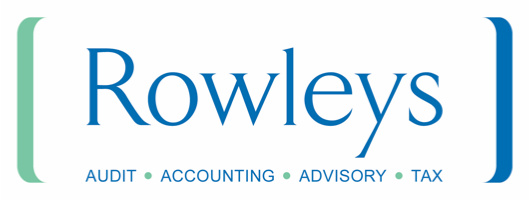News & Events
A missed opportunity: Gift Aid on trustees’ expenses
22nd January 2024
Gift Aid is a well-known tax relief that allows charities to claim an additional 25% on eligible donations. However, there is a lesser-known opportunity that many charities may be overlooking – Gift Aid on trustees’ expenses. By creating an expense policy and encouraging trustees to donate their expenses back to the charity, organisations can unlock a valuable source of additional income. In this article, Rowleys’ Head of Charities, Lisa Parkes, delves into this untapped potential and shares more on the benefits and considerations surrounding Gift Aid on trustees’ expenses.
Understanding Gift Aid on trustees’ expenses
To claim Gift Aid on trustees’ expenses, a charity must have an expense policy in place, ensuring transparency and accountability. This policy should clearly define the types of expenses that qualify for reimbursement, such as travel, accommodation, and other costs incurred by trustees in the course of fulfilling their duties. Crucially, these expenses should not be related to the purchase of goods or services, as the normal Gift Aid rules for those transactions already apply.
The mechanism for claiming Gift Aid on trustees’ expenses involves trustees personally paying their approved expenses and then choosing to donate them back to the charity. The trustee must be a UK taxpayer, as this is a requirement for Gift Aid eligibility. By making a Gift Aid declaration, the trustee allows the charity to claim the basic rate tax on their donation, boosting the value of their gift by 25%.
Benefits for charities
- Increased funding: By actively promoting Gift Aid on trustees’ expenses, charities can tap into a new revenue stream. Trustees who choose to donate their expenses back to the charity can make a contribution towards supporting the organisation’s mission. Over time, this can translate into an increase in funds available for charitable activities.
- Engagement: Encouraging trustees to participate in Gift Aid on trustees’ expenses can deepen their sense of involvement and commitment to the cause. Trustees may feel motivated to donate their expenses back to the charity, knowing that it helps maximise the impact of their contribution. This engagement can foster a stronger relationship between trustees and the organisation, potentially leading to increased support in other areas.
Considerations for charities
- Expense policy: A well-defined expense policy is crucial for transparency and compliance. Charities should establish clear guidelines on eligible expenses and document them accordingly. The policy should address any potential conflicts of interest and ensure that expenses are reasonable and necessary for the trustees’ duties. By setting these parameters, charities can avoid potential issues and ensure a smooth process for claiming Gift Aid.
- Voluntary nature: It is important to emphasise that trustees are under no obligation to donate their expenses back to the charity. Gift Aid on trustees’ expenses should always be presented as an option rather than a requirement. Trustees may have personal financial circumstances that prevent them from donating their expenses, and charities should respect their decisions in this regard.
- Communication and compliance: Charities should educate their trustees about the benefits and procedures of Gift Aid on trustees’ expenses. Regular communication can help raise awareness and encourage participation. Reminding trustees to complete Gift Aid declarations is essential, providing the necessary information for claiming tax relief. Additionally, charities should maintain proper records to ensure compliance with tax regulations and facilitate accurate claims.
Gift Aid on trustees’ expenses represents an untapped opportunity for charities to add to their funding streams. By establishing an expense policy and promoting the option for trustees to donate their expenses back to the organisation, charities can unlock additional income and further their charitable activities. It is essential for charities to communicate the benefits and procedures clearly while respecting the voluntary nature of trustees’ participation.
Contact us
Rowleys specialist charities and not-for-profit team provide support and advice for a wide range of charities and not-for-profit organisations. For more information on our audit and accounting services, please Get in Touch
